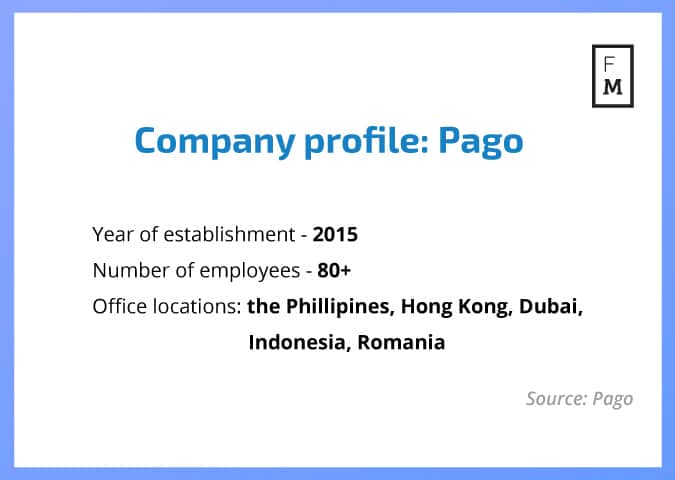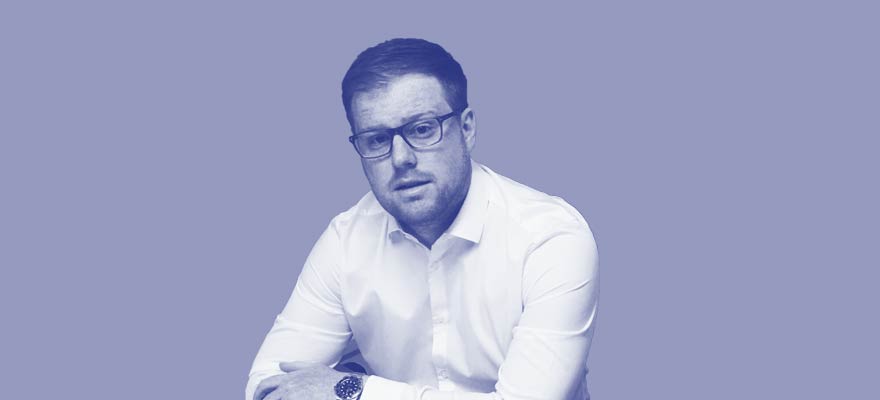Please tell us about yourself and how you reached your current role.
I have been involved in Payments for almost a decade, working with companies such as Elavon, First Data Europe and SafeCharge. I was Head of Business Development for Pago’s sister company, PaySec, focused on delivering Asian Payment methods for e-commerce companies and merchants.

In 2016 I moved across to Pago to grow the business proposition for the online trading industry. It’s a great next step for me and we see this industry vertical as a key to our growth.
How would you define the challenges facing payment solutions providers that deal with the online trading industry?
While there are idiosyncrasies for the online trading industry, the reality is that the issues facing online payments are prevalent across the spectrum of online payments. The marketplace for anyone taking payments online is now truly global, but at the moment there is no one-size-fits-all way of approaching it.
In a global world, local knowledge is key. Understanding the legislative situation is vital, but equally important is to understand the trends and demographics in any given territory. Once you move outside of territories that see credit cards as the de facto way of paying, the terrain gets very complicated.
ATM payments, supermarket payments, digital wallet payments, bitcoin – each country has a different mindset on how to make a payment, but then every demographic within that country probably also diversifies.
What hot trends do you identify in the payments industry?
The key trend seems to be that everyone is trying to pick up and follow the key trends. There is a danger that people tend to try to replicate what they see working rather than believing in their own solutions.
Yes, digital wallets will continue to develop and evolve, and yes, it is important that in territories where cash is king some form of hybrid payment mechanism is important, and yes, targeting the un- and underbanked in developing countries is key.
The trend that will continue is the battleground to win hearts and minds on behalf of a specific payment method – but in terms of what those solutions are I think there will be a lot of ebbing and flowing to come yet, making fools of people who insist that one trend is going to lead to the promised land of alternative payments.
One of the results of tightened regulations is the blooming of unregulated Forex and binary options brokers. Does this phenomenon affect your business?
Anyone looking to provide payments solutions in this industry needs to think seriously about it.
There is a temptation as a PSP to look to take on any merchant that will process money but you must take care. We carry out KYB and Risk and Fraud with all our merchants or brokers which is just common sense to protect ourselves, but we don’t wish to be facilitating payments for customers using companies that are unreliable. Knowing a company is regulated is one of the more obvious checks we do.
How does Pago accommodate the differing needs of different markets?
The reality is it’s not just a case of differing needs of different markets but of different merchants. And much of the answer to this is related to what we discussed with regard to the online trading industry.
There are so many ways to pay in and pay out of accounts and part of the trick for us is to educate our clients on the nuances of the territory they are entering and the market they are targeting. That applies to different markets for forex and binary options and then goes one further when you extend to different industry verticals such as travel or e-commerce.
Your average forex trader is a different beast from an online shopper whether you are in Sao Paolo or Sydney.
What are your goals for the company over the next few years?
To make lots of money? That’s a pretty obvious goal and any payment provider who says different is lying but there is more to it than that. I want long-standing partnerships not just because we have a good product but because we offer them good service and support and have relationships with them they want to maintain.
We’re in the early days of our journey but if we do our jobs right I’d like to think we will build the reputation of a company that people think of as providing a good solution, bending over backwards to accommodate individual needs but doing so with a smile on our face.
What do you think sets you apart from the competition?
I think anything we say in answer to that question is going to sound a bit twee. I could come up with the usual… service, support, product, range of solutions, but anyone who doesn’t offer all of those or says that would be quite strange.
It would be fun to say something outlandish such as 'what makes us different is we keep pet giraffes in our office' but we don’t believe in cruelty to animals and it wouldn’t be true. So, while it will sound twee I’ll stick to a dedication to find the right solution for any of our clients based on their needs and not what we want to offer.
How do you view the current state of the industry?
Fractured. We were at PayExpo in London last year and they had a boxing ring set up with leading payments experts debating various issues and it really drove home just how many issues there are.
There were more standard debates such as whether digital wallets will replace e-wallets and what will replace cards, but also some completely out there issues, such as whether all non-KYC prepaid cards should be banned or if biometric innovations will replace passwords and PINs.
It’s not just about technology but how that technology is regulated, marketed, taken up, applied, combined with other technologies.
But that is what makes payments such an amazing industry to be involved in - there is so much happening and so many opportunities and people out there with fantastic ideas; it’s so stimulating.
What new fields or opportunities do you see as growth potential in the market?
Everything and nothing. I don’t think there is anything particularly 'new' out there. It’s now just a case of which technologies will emerge and be successful, and where.
I equate it to the early days of digital technology. Digital cameras, MP3 players, internet phones – everyone knew they were coming, it was just a case of who would create the best technology and market it the best.
I think we all accept that digital wallets will play a big part, that mobile payments are key, that prepaid cards still have a role to pay… there is growth potential across the board because no single technology will be the answer over and above all others.






















